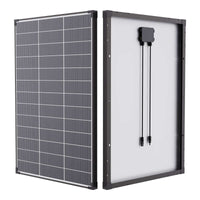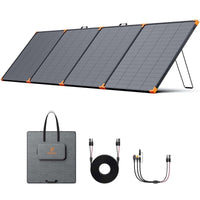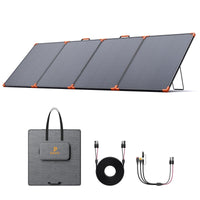5 Smart Ways to Cut Your Electric Bill by Up to 40%
As energy prices rise and summer temperatures soar, many Americans are looking for ways to lower their electric bills. According to the U.S. Energy Information Administration (EIA), residential electricity consumption peaks during the summer—especially due to air conditioning. But with a mix of smart habits, home upgrades, and solar solutions, you can significantly reduce your energy consumption and save money. Energy conservation isn’t just about saving money. It’s about reducing your carbon footprint, protecting the environment, and promoting sustainable living.

Why Your Power Bill Keeps Rising
From icy winters to blazing summers, U.S. households rely heavily on electricity for heating, cooling, and daily comfort. But with energy costs steadily increasing, now is the time to take control of your energy consumption.
💡 Right now, it’s summer—the most power-hungry season of the year. Air conditioning can spike your bill, making smart energy habits even more important.
Average U.S. Household Electricity Use (Per Quarter)
Electricity usage varies by region due to climate, housing size, and appliance load. Here’s a snapshot of the average residential electricity consumption by state (in kilowatt-hours, kWh) per quarter:
| State | Spring (Q2) | Summer (Q3) | Fall (Q4) | Winter (Q1) |
|---|---|---|---|---|
| Texas | 3,400 kWh | 4,500 kWh | 3,100 kWh | 3,300 kWh |
| California | 2,400 kWh | 3,200 kWh | 2,100 kWh | 2,000 kWh |
| Florida | 3,200 kWh | 4,200 kWh | 3,300 kWh | 3,000 kWh |
| New York | 2,200 kWh | 2,800 kWh | 2,300 kWh | 3,500 kWh |
| Arizona | 3,100 kWh | 4,600 kWh | 3,000 kWh | 2,400 kWh |
| National Avg. | 2,800 kWh | 3,800 kWh | 2,700 kWh | 3,100 kWh |
Insight: While summer energy usage is the highest due to cooling, winter heating also causes major spikes in colder regions. A year-round approach to energy efficiency is essential.For details, please check the Energy Information Agency
What’s Using the Most Electricity in Your Home?
No matter the season, certain appliances are the top offenders:
| Appliance | Year-Round Impact | Summer Spike |
|---|---|---|
| HVAC (Heating/Cooling) | 40–50% | High (AC) |
| Water Heating | 15–20% | Medium |
| Refrigerator/Freezer | 10–15% | High (hot temps) |
| Electronics & Lighting | 10–12% | Slight |
| Laundry (Dryer) | 5–7% | Slight |
✅ How to lower electric bill?5 Tips for you
These practical energy-saving strategies apply in all seasons, with summer-specific notes included where relevant.
1. Become an HVAC Ninja
Energy-Efficient Air Conditioning Tips : Your AC is likely the biggest summer energy hog.
-
Set it Smart: Aim for 78°F when home and higher when away. Each degree lower can increase cooling costs by 6-8%.
-
Maintain it: Change air filters monthly. A dirty filter makes your system work harder, spiking energy consumption.
-
Seal & Insulate: Ensure windows and doors are weather-stripped. Check attic insulation – proper levels prevent cool air escape.
-
Use Ceiling Fans: They create a wind-chill effect, allowing you to raise the thermostat 4°F without comfort loss. Remember: Fans cool people, not rooms – turn them off when you leave!
-
Shade Smart: Use blinds, curtains, or external shades (especially on south/west windows) to block heat gain. Plant deciduous trees for long-term shading.
2. Unplug the "Energy Vampires"
Many devices suck power even when "off" (standby power).
-
Use Power Strips: Plug electronics (TVs, game consoles, chargers) into strips and turn them off completely when not in use.
-
Unplug Rarely Used Items: Think spare fridges, guest room chargers.
3.Optimize Appliance Use:
-
Wash Smart: Use cold water for laundry whenever possible. Run full loads in both washer and dishwasher.
-
Fridge/Freezer Efficiency: Keep coils clean. Ensure doors seal tightly. Don't overcrowd – airflow is key. Set fridge to 37-40°F, freezer to 0-5°F.
-
Water Heater Wisdom: Lower the thermostat to 120°F. Insulate older tanks. Take shorter showers and fix leaky faucets (hot water leaks are double energy wasters!).
4. Switch to LED Lighting
They use at least 75% less energy than incandescents and last years longer. It's one of the fastest payback upgrades.
5. The Ultimate Power Play: Go Solar!
While the above tips are crucial for energy conservation, how to save money on electric bill most dramatically often involves generating your own power. Here’s where solar panels shine:
-
Lock in Lower Rates: Solar significantly reduces or even eliminates your reliance on the grid, protecting you from rising utility rates.
-
Maximize Summer Savings: Solar produces the most power precisely when your AC use (and electricity costs) peak.
-
Long-Term Investment: Federal tax credits (currently 30%) and other incentives make solar more affordable than ever, offering a strong ROI. You're not just conserving energy; you're creating it sustainably.
☀️ How Solar Power Saves You Money
Solar energy is one of the most powerful tools in reducing both energy consumption and electric bills. Here’s how:
-
Generates Free Electricity: Once installed, solar panels produce power with zero fuel cost.
-
Cuts Grid Dependency: Reduces or eliminates monthly electricity costs.
-
Provides Backup During Outages: With solar + battery setups, you stay powered even when the grid goes down.
-
Qualifies for Tax Credits & Incentives
How Much Can You Save?
A household in California can save an average of $1,200–$1,800 per year by switching to solar. That’s up to $45,000 over 25 years.
What Can Be Solar-Powered?
-
Outdoor lights & landscape systems
-
Portable power stations & camping gear
-
RVs & boats
-
Security cameras
-
Emergency battery storage systems
ZOUPW solar panels are a quality option for saving electricity
N-TYPE Solar Panels: With up to 25% conversion efficiency, these panels can be installed on your roof, shed, workshop, or tiny home—delivering reliable clean power.
450W Foldable Solar Panels: Perfect for gardens, backyards, or any open space. Just set them down, unfold, and start charging your essentials. No tools. No fuss.
Products like ZOUPW's portable solar panels are perfect for summer camping, RV trips, and emergency energy storage. They're rugged, compact, and designed for real-world use.
Whether you're cutting your electric bill or preparing for outages, ZOUPW solar products are built for energy independence—one watt at a time.

❓ FAQ
How much can solar panels reduce my electric bill?
Savings vary based on system size, location, energy usage, and local electricity rates. However, many homeowners see reductions of 50-100% on their monthly bills. With federal tax credits and potential state incentives, the payback period is often 5-10 years, and systems typically last 25+ years, providing decades of significant savings.
Can I use portable solar panels at home?
Absolutely. Use them to charge small electronics, power backup batteries, or run low-watt appliances—all while cutting grid demand.
How does the Law of Conservation of Energy relate to saving energy at home?
The law of conservation of energy states that energy cannot be created or destroyed, only converted from one form to another. Home energy savings focus on minimizing wasteful conversions. For example, preventing heated or cooled air from escaping (lost thermal energy), using efficient appliances that convert more electricity into useful work (like cooling or spinning) instead of heat, and harnessing solar energy directly (converting sunlight to electricity) instead of relying solely on grid power generated from less efficient processes (like fossil fuels).
What help is available if I struggle to pay my bill, especially in winter?
Many states and utilities offer entergy bill assistance programs (or similar programs under different utility names) specifically for cold winter months (and sometimes summer). These include the federally funded Low Income Home Energy Assistance Program (LIHEAP), utility-sponsored payment plans, budget billing, and local charitable organizations. Contact your utility provider directly or visit benefits.gov to explore options you may qualify for.
✅ Final Thoughts
Electricity costs aren’t going down, but your bill can—with smart strategies, solar power, and a little consistency.
Whether you’re beating the heat in July or keeping warm in January, energy conservation makes sense—for your wallet and the planet.
シェア



